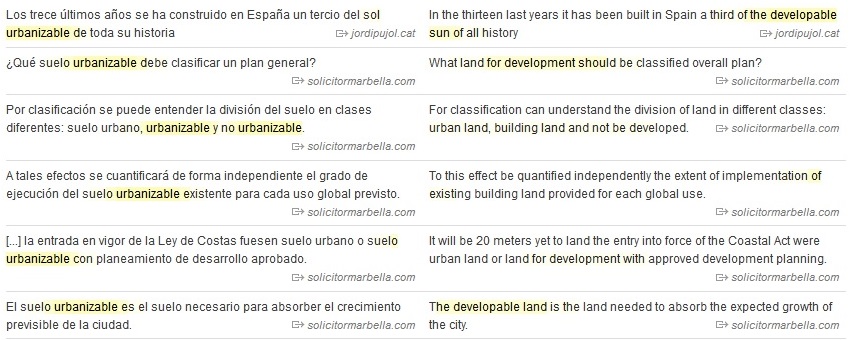One extremely useful tool that translators have begun using in recent years is Linguee. In bygone years, to find out how a term had been translated on a bilingual website we would usually have to open the page in one language, then find the same page in our target language (which on some websites was not easy) and try to find the same sentence.
Linguee made this process easier by searching through bilingual websites and displaying sentences containing our term in one column, and the translations of those sentences in another column (see image below).
Understandably, many mediocre translations end up in the database, and we can forgive Linguee for search results that include, for instance, poor translations from a European Union webpage, since Linguee will just add all European Union texts.
However, it would be nice if Linguee could start purging out some of the websites whose translations are consistently poor, if not nonsensical. What is particularly frustrating for translators is that some of these websites seem to be favoured by the search results.
Two such websites are jordipujol.cat (a site launched by now-disgraced former Catalan president Jordi Pujol) and solicitormarbella.com.
The above results were all from a single search for “urbanizable”. Clearly the English texts are machine translations. Not only that, but the result from jordipujol.cat contains a machine translation of a machine translation. Nobody is discussing developing property on the sun! Rather, “sol urbanizable” is a mistranslation of the Catalan “sòl urbanitzable”, probably as a result of the Catalan author writing “sol” (meaning sun, also “sol” in Spanish) instead of “sòl” (meaning land, “suelo” in Spanish).
I have just sent a message to Linguee asking for the two inactive websites to be removed from Linguee. It will be interesting to see whether they are removed.

